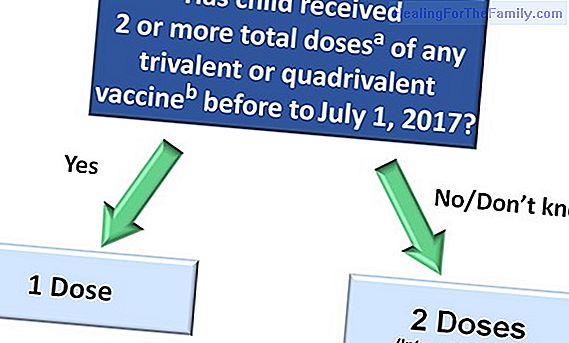How to tell the child that one of his parents has died
Communicating the death of a loved one, like a father or a mother, is always a difficult news to transmit, but when the recipient is a child, he does not even know what death is, it gets even more complicated. In the event that it is necessary to do so, it will be essential to adapt the message to t
Communicating the death of a loved one, like a father or a mother, is always a difficult news to transmit, but when the recipient is a child, he does not even know what death is, it gets even more complicated.
In the event that it is necessary to do so, it will be essential to adapt the message to the child's age pero, but always following basic rules.10 tips to communicate to the child the death of one of their parents
Here are some tips to make something little more bearable this difficult moment:

1.
Do not lie: Children need to know the truth, not be You can lie and say that they are gone, that they are somewhere else, because the child realizes that something is happening and many times that management of silence and uncertainty is almost worse than telling him what happened. 2.
Do not give more information than necessary: It is not necessary to give them details, there is no need to explain how he died or the causes of his death. And of course there is no need at all for the child to see the deceased relative. Some sensitive children can be very affected by that vision, and it is better to remember it alive. Something that helps them understand death is to tell them about a pet, the typical orange fish of the fair that they died. However hard it may seem, children have to know that life ends .3.
Give them security: it is very important how they see the parents; Of course it's normal to be sad porque because dad or mom is no longer there. It is good that from time to time the child cries and pulls out the feeling, that he sees that the adults also cry. But what you have to avoid is a state of depression or absolute apathy, since it is normal that once one of the two has died, the boy or girl generate a certain fear of what is going to happen to the other, so we must reinforce their security. 4. Prevent the child from witnessing unpleasant situations:such as accessing the funeral home, seeing the coffin ... if the children are small or very sensitive they will not contribute much and it is more likely that
they will take a very unpleasant memory of the day. 5. It will be very important to communicate with the school: In these cases you always have to talk with the teachers, not only in the event of the father's or mother's day if they are missing, but from the moment in what happens and from the first day of the course, to help us monitor the behavior of the child and warn us of any incident.
6. The support of friends is important:It is important not to change the school to the child after an event of this type, because you will need all the support available and your friends.
7. Grief depends on each person:Three months can be a reasonable time, but it will depend on each person and each situation.
8. We are attentive to the signs of their behavior:Sometimes the children
have a hard time verbalizing their feelings , so many times we will notice how the situation is evolving through the drawings or what they are talking about and especially through what they do and do not do.9. There are certain cases that the help of a professional may be necessary: If we see that the situation lasts longer than we think, or that behaviors that were not previously occurring are happening, it is best to go to a professional
to help the child recover the illusion. 10. We can learn to be happy: it is important to convey to the child the idea that no matter how hard the situation is, we must continue to look for the kind side of life, that our happiness does not depend on others, that it depends on us same.












